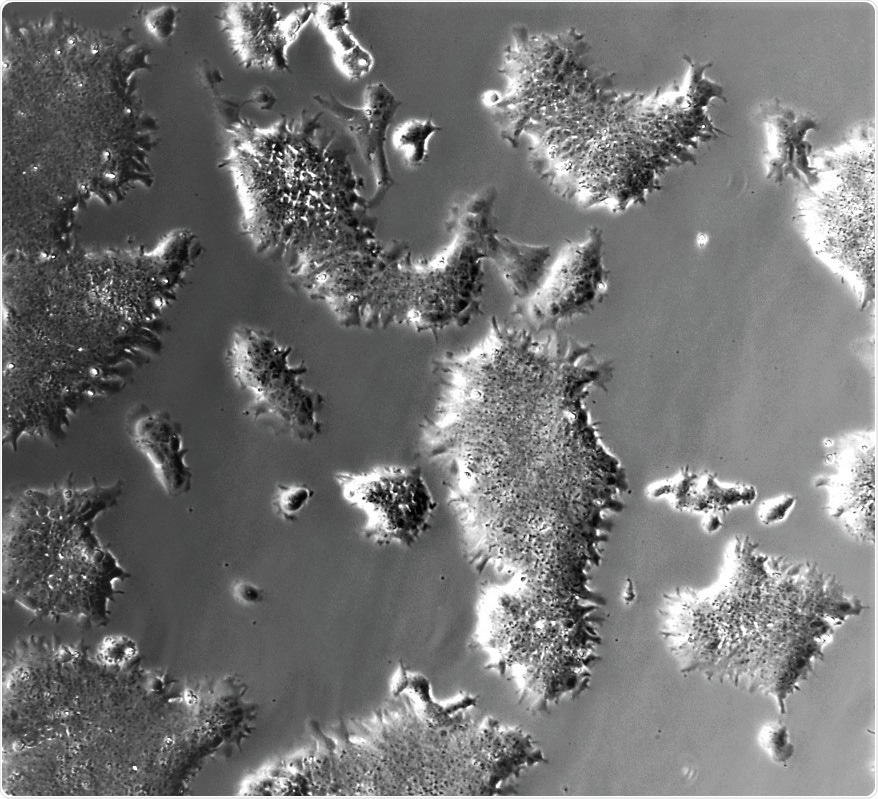Researchers for the first time acquired stem cells from livestock that was grown under chemically defined conditions. This could pave the way for breeding improved livestock and manufacturing cell-cultured meat.

Pluripotent stem cells. Image Credit: University of Nottingham, Professor Ramiro Alberio.
Scientists from the University of Nottingham’s School of Biosciences, along with co-workers at the Universities of Cambridge, Exeter, Tokyo, and Meiji (Japan) generated stem cell lines from sheep, pigs, and cattle embryos developed without feeder cells, serum, or antibiotics. The study was published on December 7th, 2021, in the Development journal and was funded by BBSRC, EU (ERC), MRC, and Wellcome Trust.
The chemically defined conditions are growth mediums appropriate for the in vitro cell culture of animal cells, where all the chemical components are known. The standard cell culture media generally comprises a basal medium supplemented with animal serum (like the fetal bovine serum, FBS) as the source of nutrients and other indefinite factors.
The use of serum includes many technical disadvantages like batch-to-batch variability in composition, undefined nature, and the risk of contamination. But this new chemically defined approach offers much safety and consistency, making it a perfect solution for producing new laboratory-grown food products.
Professor Ramiro Alberio headed the study.
The ability to derive and maintain livestock stem cells under chemically defined conditions paves the way for the development of novel food products, such as cultured meat. The cell lines we developed are a step change from previous models as they have the unique ability to permanently grow to make muscle and fat.”
Ramiro Alberio, Professor, University of Nottingham
These new cell lines could differentiate into various cell types and can be genetically manipulated with the Crispr/Cas9 gene-editing tool. These stem lines can also be used as donors for nuclear transfer. This technique provides new opportunities for broadening research into gene editing animals to enhance their productivity, adaptation to climate change, and alterations of diets to decrease the environmental effect of livestock production.
Gene editing in this way makes modifications that could happen naturally over a long time but in a selective a rapid manner to customize specific traits. This can accelerate the pace of genetic selection of livestock and cultured meat to improve productivity and the creation of healthier foods.”
Ramiro Alberio, Professor, University of Nottingham
“With a growing population to feed in a changing climate finding reliable and sustainable food is vital. This research offers potential solutions that the food industry could use at scale,” added Professor Alberio.
It is very exciting that starting from a fundamental question about early development in different animals we have discovered a technique that may revolutionize future production of meat”.
Austin Smith, Professor and Director, Living Systems Institute, University of Exeter
Professor Austin Smith is one of the world’s leading experts in stem cell research.
Source:
Journal reference:
Kinoshita, M., et al. (2021) Pluripotent stem cells related to embryonic disc exhibit common self-renewal requirements in diverse livestock species. Development. doi.org/10.1242/dev.199901.